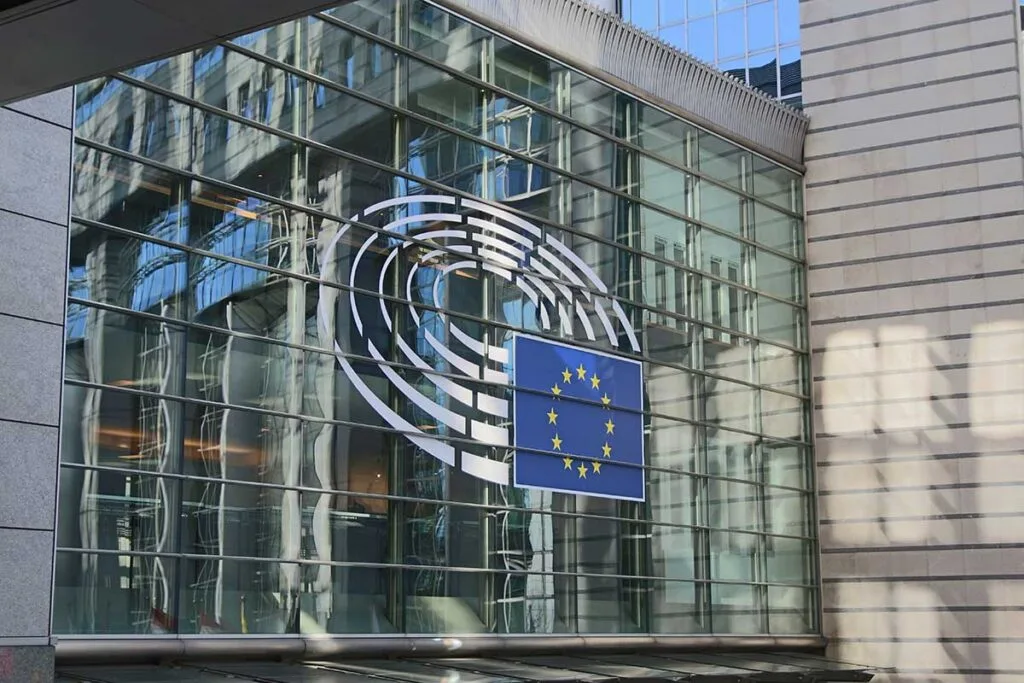
After hours of negotiation, the European bloc agreed to the terms of the Digital Services Act (DSA) early this Saturday morning (23). The legislation should force big tech companies like Google and Meta to take responsibility for the content that appears on their respective platforms.
Image: EmDee/CC BY-SA 4.0
The new legal obligations must oblige companies to explain to users and researchers how the platform’s algorithms work, in addition to taking stricter measures against the spread of false information. In case of non-compliance, companies will be subject to fines of up to 6% of annual revenue.
Digital Services Law requirements worry Meta and Google
According to European Commission President Ursula von der Leyen, “DAS will update the ground rules for all EU online services”. “It gives practical effect to the principle that what is illegal offline must be illegal online.” The larger the size, the greater the responsibilities of online platforms,” she said in a statement.
Margarethe Vestager, European Commissioner for Competition responsible for much of the bloc’s technological regulation, argues that the law “would ensure that platforms are held accountable for the risks that their services may pose to society and citizens”.

Image: Niamfrifruli/Wikimedia
Another law that also affects the technological world was also recently agreed, the DMA — Digital Markets Law. However, unlike the DSA, the law established in March focuses on creating a level playing field between companies, while the digital services law addresses how companies police content on their platforms, thus having a more immediate impact on the netizens.
As with GDPR regarding cookie notices, the DSA is also expected to be felt in other parts of the world, although it is also legislation restricted to EU citizens. That’s because global technology companies may decide that it is more cost-effective to implement a single strategy to police content and benchmark against stringent EU regulations. As in Brazil with the LGPD, US lawmakers interested in controlling big tech companies with national regulations have already started looking to European rules for inspiration.

Image: Maurizio Pesce / Wikimedia Commons
A common point between the legislations is that both will distinguish between the different sizes of technology companies, imposing greater obligations on the giants. Companies with at least 45 million EU users — like Meta and Google — will face the most scrutiny. They are also responsible for lobbying to water down the DSA’s requirements, particularly on the points relating to targeted advertising and handing over data to outside researchers.
Although the final text of the DSA has not yet been published, the Parliament and the European Commission have already detailed a series of obligations that will be in the legislation:

Image: Guillaume Perigois/Unsplash
- Targeted advertising based on an individual’s religion, sexual orientation or ethnicity is prohibited. Minors may also not be subject to targeted advertising.
- “Dark defaults” — confusing or misleading user interfaces designed to guide users to make certain choices — will be prohibited. The EU says that, as a rule, unsubscribing should be as easy as subscribing.
What is illegal offline must be illegal online
- Online platforms like Facebook will have to make the operation of the algorithms responsible for recommendations on the platforms (used to classify content in the News Feed or suggest TV shows on Netflix) transparent to the user. The law also provides that users must be offered a “non-profile” recommendation system. The Instagram chronological feed is a recently introduced example.
- The removal of content made by the platforms will also undergo changes. Hosting services and online platforms will have to clearly explain the removal of illegal content, as well as provide users with the ability to appeal against such actions. This will be up to each country, as the DSA does not define the illegality of content.
- In addition, the largest online platforms must pass on key data to researchers to inform “how online risks evolve”.
- For online marketplaces, they must maintain basic information about merchants on their platforms in order to identify and track those selling illegal products or services.
- A provision inspired by the recent invasion of Ukraine also puts major platforms in charge of implementing new strategies to deal with disinformation during crises.
Rules take effect 15 months after reading if voted on
The general terms of the DSA have already been agreed by the member states of the European Union, however, the legal language still needs to be finalized and the law officially voted on. Although these last steps are considered a mere formality. Once voted on, the rules take effect 15 months or later, starting January 1, 2024.
Via The Verge



